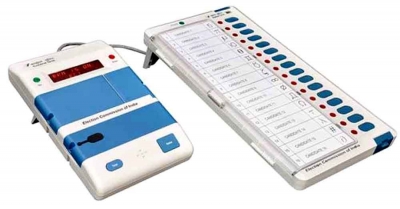
In the midst of elections being held in several States of the country, let’s look at the role of the Election Commission of India in the elections.
The Election Commission of India (ECI) is the authority responsible for conducting free and fair elections in the country. Operating under Article 324 of the Constitution, the ECI is empowered to administer elections to Parliament, State Legislatures and the offices of the President and Vice-President. Being a constitutional authority, the commission is among the few institutions that function independently.
When was it set up?
Established in January 1950, the commission originally had only a Chief Election Commissioner. It became a multi-member body in January 1990. Currently, the Election Commission consists of the Chief Election Commissioner (CEC) and two Election Commissioners (ECS). Though appointed by the President, the CEC is not answerable to the President or the government. The CEC and the ECS enjoy a tenure of six years, or up to 65 years of age, whichever is earlier. They can resign or be removed before the expiry of their term. They get salary and perks similar to the Supreme Court judges.
The Election Commission of India is headquartered in Delhi. Sunil Arora is currently the CEC, with Sushil Chandra and Rajiv Kumar as the two ECs. The Election Commissioners are assisted by Deputy Election Commissioners, Directors General, Principal Secretaries, and Secretaries. At the State level, the EC is assisted by the Chief Electoral Officer of the State.
Powers of the ECI
The ECI, which is regarded as the poll watchdog in the country, has wide-ranging powers. From the announcement of elections to the declaration of results, it controls every aspect of elections. It is the commission that prepares electoral rolls and updates the voters’ list from time to time.
Soon after elections are announced, the ECI enforces the model code of conduct, which lays down guidelines for the conduct of political parties and candidates during an election period. It is also responsible for punishing any candidate or party violating the code. Besides notifying dates for filing of nominations by candidates, the commission allocates symbols to political parties. It sets limits on poll expenses to ensure a level-playing field and curb use of black money in elections. During the election period, the EC can order the incumbent government to desist from misusing its power and the official machinery to improve its chances at winning elections. It is significant to note that government officials and staff on election duty work under the EC and not the government.
QUICK FACTS
- On February 26, 2021, the Election Commission announced the schedule for assembly elections to be held in West Bengal, Assam, Kerala, Tamil Nadu, and Puducherry.
- Voting for the assembly elections began on March 27, with West Bengal having the maximum eight phases continuing till April 29. The counting of votes for the four States and one Union Territory will take place on May 2.
- In the midst of the pandemic, all staff on poll duty have been declared “frontline workers” and inoculated against the disease, as per the directions of the ECI.
- VIGIL is a mobile application launched by the ECI for citizens to report Model Code of Conduct and Expenditure violations during elections.
Picture Credit : Google



